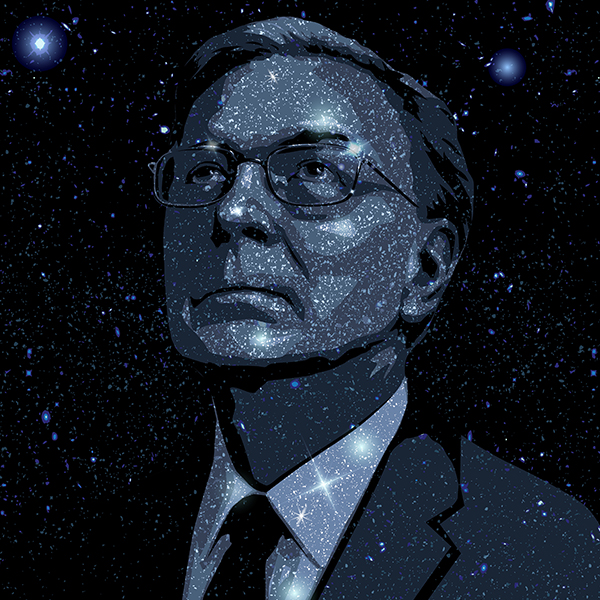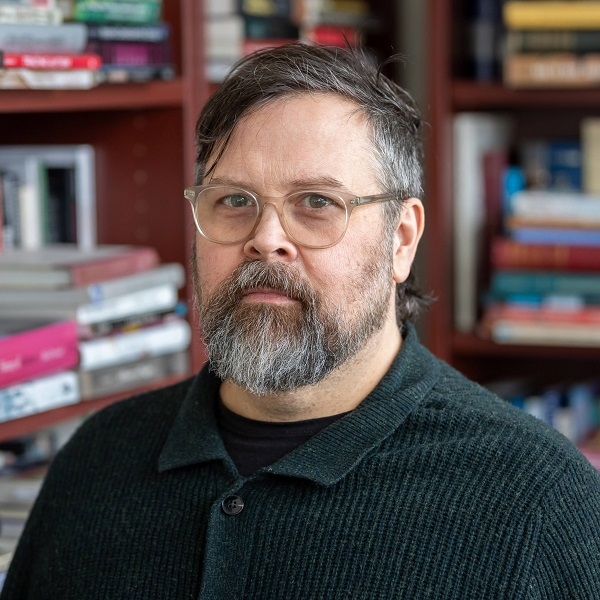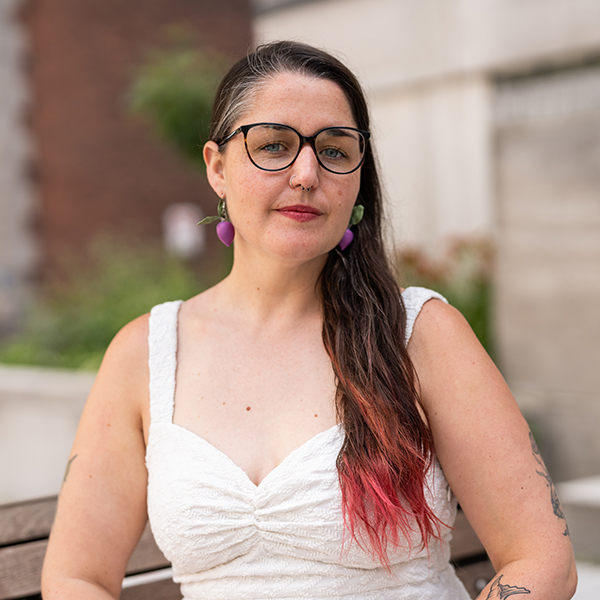Maria Popova can tell simply by the number of interview requests she receives, that day-to-day coverage of the war in Ukraine has waned.
“I did over 200 interviews in 2022, about 150 in 2023. It is really declining significantly,” says Popova, an associate professor in McGill’s Department of Political Science who studies the rule of law and democracy in Eastern Europe.
But there’s an understanding, especially in Europe, that it can’t tune out the war, Popova says. “They really cannot afford to do that because Russia’s ambitions have escalated.”
Russian President Vladimir Putin regularly talks about how the Baltics also belong to Russia and will be eventually subjugated, or threatens Poland, Popova adds. “The conflict that is now clear between Russia and Europe – and the West more broadly – has only intensified.”
Popova won the Principal’s Prize for Public Engagement through Media (Established Academics category) at McGill in 2023 for sharing her expertise extensively in local, national, and international media in the context of Russia’s invasion of Ukraine.
As the war reaches its grim second anniversary, Popova continues to shed light on the intractable conflict in her new book Russia and Ukraine: Entangled Histories, Diverging States.
Co-written with Oxana Shevel, an associate professor of political science at Tufts University, Popova says they wanted to write a book that could be both accessible to non-academics, useful to students and grounded in academic research rather than more journalistic accounts.
It explores how the politically divergent paths of Ukraine and Russia since the dissolution of the former Soviet Union in 1991 led to the war. They contend that a cycle of escalation between Russian imperialism and Ukraine’s commitment to independent statehood since that historic break-up is at the root of it.
In an interview, Popova explained that the Russian identity definition posits a tri-nation unity with Russians as the big brother and Belarusians and Ukrainians as the younger ones. “Both Belarus and Ukraine are central to this understanding of Russian identity as a supranational identity,” she says. “It’s really fundamentally a belief in empire that is enduring.”
Russia has long viewed Ukraine as a “branch of its own nation and expected from the start of the post-Soviet period to control Ukraine politically in some form or another,” Popova and Shevel note in the book, which concludes with an unequivocal statement: “Ukraine must be free and the empire must finally die.”
Like Putin, the West anticipated that Ukraine would fold quickly after the Russian invasion in February 2022, Popova says. “There was a pervasive misunderstanding of the extent to which over the past 30 years, Ukrainians committed to their independence and to a distinctive Ukrainian identity – and in such overwhelming numbers – that they could rise up like this to defend their independence from Russia’s encroachment. I think both Russia and the West misjudged that.”
“Segments of the Ukrainian electorate feared that [Zelenskyy] would sell out Ukraine to Russia. I don’t think anybody would have [foreseen] this Churchillian figure that emerged.”
Maria Popova
Another revelation has been Ukrainian President Volodymyr Zelenskyy, a former comedic actor who has successfully rallied support for his country in the West. “That was part of the surprise of 2022,” Popova says. “He is an entertainer. So, he’s always been effective at communication.” But as a politician before the full-scale invasion, he wasn’t particularly skilled or popular, she says. “In fact, segments of the Ukrainian electorate feared that he would sell out Ukraine to Russia. So, if one had to predict how he would act in January 2022, I don’t think anybody would have [foreseen] this Churchillian figure that emerged.”
The book delves into the growing chasm in the two neighbours’ political trajectories: Russia increasingly authoritarian and Ukraine more democratic. Was there one change in Ukraine’s shift to an independent democratic state that was the proverbial straw that broke the camel’s back for Russia?
“It’s very hard to pinpoint one thing. It’s really this growing divergence that also leads to Russia escalating the methods that it uses to try to bring Ukraine back in line,” Popova says. “The reason really for the full-scale invasion [in 2022] was that when Russia invaded in 2014, they thought that this dismemberment of Ukraine would lead to Ukraine just collapsing onto itself,” she says, referring to Russia’s annexation of Crimea. The opposite happened: Ukraine got stronger and increasingly distanced itself from Russia.
“The interesting thing – and we emphasize this a lot in the book, is that [Ukraine’s] NATO orientation, the geopolitical orientation is actually one of the last things that switched. It’s not what drives the collision course and the divergence between Russia and Ukraine,” Popova says. “It’s kind of the effect of divergence that happened domestically.”
Part of that was the significant regime differences, Popova says, “that really showcased for Ukrainians what stark choice they’re facing. And eventually, they thought, OK, there’s also a geopolitical choice here to be made, and we’re choosing the West. But a lot of the other accounts get it backwards, and they think, well, Ukraine chose to look to the West or was lured by the West, as some will tell you, and that created all the problems. No, the problems existed before, and they came from Russia trying to impose domestic political choices on Ukraine and Ukraine resisting.”
Two years on, Popova sees no end in sight to the conflict “because the goals are absolutely irreconcilable, and they cannot be met halfway because Russia wants the full destruction of the Ukrainian state and nation. It doesn’t want part of Ukraine. It wants it all.
“And for Ukraine, it continues to be existential. They don’t plan to surrender. There is a very high level of support within Ukrainian society…they want to survive as an independent nation. It’s not a conflict that’s conducive to negotiation and meeting halfway. So, the only way it can end is with military defeat of some sort on the battlefield – and defeat in the sense of one side cannot keep going.”
For Ukraine, the biggest threat is the West becoming distracted and complacent and not supplying enough weapons, she says. “That’s really the biggest threat that Ukraine faces much bigger than any internal divisions.”


